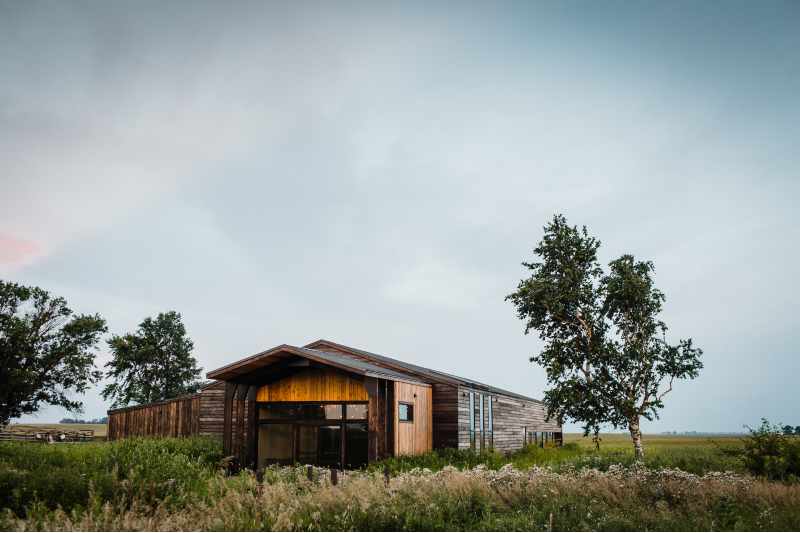It’s a bit of an understatement to say that this has been a difficult year for the wedding industry, particularly wedding venues. When your business revolves around large gatherings of people eating and drinking, often in enclosed spaces, in a time when doing those things poses a community health risk, it’s nearly impossible to keep it running. Abbie Frank, co-owner of Bluestem Hall in Urbana, has decided to take the cards the pandemic has dealt her, and change the game. This year will mark the last wedding season for Bluestem, as Frank and her husband Tim Voelker transition the building and surrounding natural spaces to a nature school.
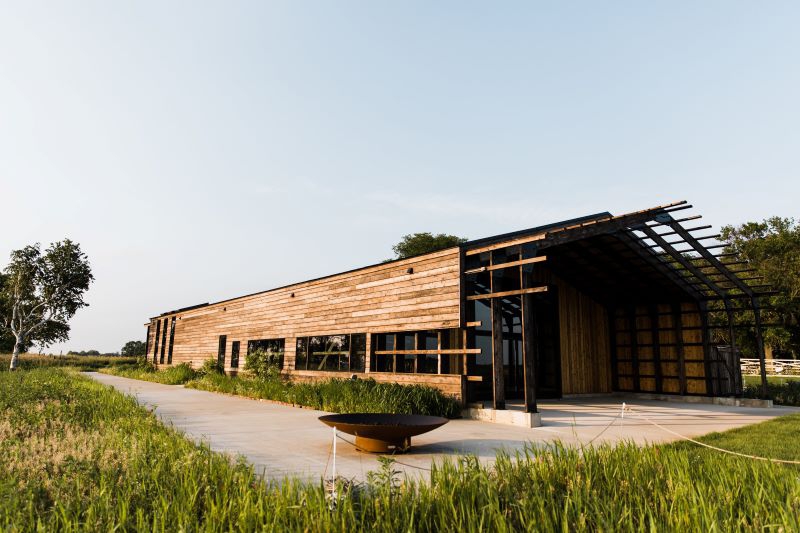
Photo by Sara Gardner.
Bluestem Hall sits on Frank’s family farmstead, which goes back five generations. Her grandfather, upon retiring from farming, began collecting native species to convert the farm into a tallgrass prairie. The Barnhart Prairie became a protected nature preserve in 2000, as it is home to an endangered squirrel community (yes, there is a species of squirrel that exists in Illinois that is endangered), as well as a safe habitat for several animals who are dependent on tallgrass prairies.
The hall itself was once a machine shed on the family farm. “It was an absolute treasure trove for me as a child,” says Frank. She and her husband renovated the shed in 2016, remaking it into the venue that it is today. They intended for it to be a multipurpose space, and while they’ve hosted various types of events, it’s become a very popular space for weddings. “When you walk into the space, you can just feel the sacred history. It’s so present, and so awe inspiring, it’s struck a chord with a variety of audiences.”
Then, the pandemic hit.
“It has been excruciating,” says Frank. “It’s been a witches brew of crippling pressure, the morals and ethics of community gathering, and our contractual obligations to our clients.” They allowed every 2020 event to be pushed to 2021, a massive logistical undertaking. Now, 2021 is here, and those couples who have patiently waited while grieving the loss of their weddings are facing more adjustments. “We have no option but to treat the public health guidelines literally, and we will continue to put all efforts towards creating a safe and healthy environment.” Throughout the pandemic, Frank and Voelker have been willing to host events as long as clients were willing to operate within public health mandates, though most couples chose to push their weddings to 2021.
Though they will still be hosting weddings this year, by the end of 2021 Bluestem Hall will undergo a major transformation in purpose, a shift brought on in part by the ways this pandemic has impacted all of our lives.
“COVID so rudely shed a floodlight on the aspects of everyone’s lives that are desperately in need of change…there were parts of our business that were truly ready for evolution. We have this established business infrastructure, we have a state-of-the-art building, and we have our native prairie. We are trying to align with our values, and honor our unique location on a state-protected nature preserve. We now see clearly that we have this opportunity to create a more progressive venture that aligns directly with our environmentalism goals as stewards of the Barnhart prairie.”
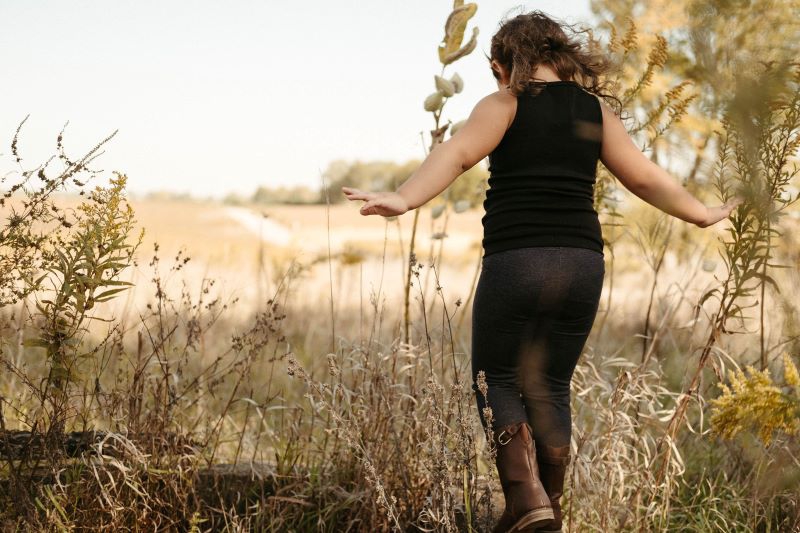
Photo by Anna Longworth.
On a personal level, Frank wants to create an educational space that she feels best suits her young daughter, and hopefully suits other children in the community as well. When she looks at the current school options, she doesn’t see a good fit for her child. Beginning later this year, Bluestem Hall will become Bluestem Hall Nature School. “The basic principle of the school is we treat nature as our classroom. We’re outside in all kinds of weather. What we are hoping to do is build a lifelong sense of belonging to the natural world, and dive deeper into a place-based literacy…using our local region, history, heritage, and flora and fauna as a jumping point for our curriculum.”
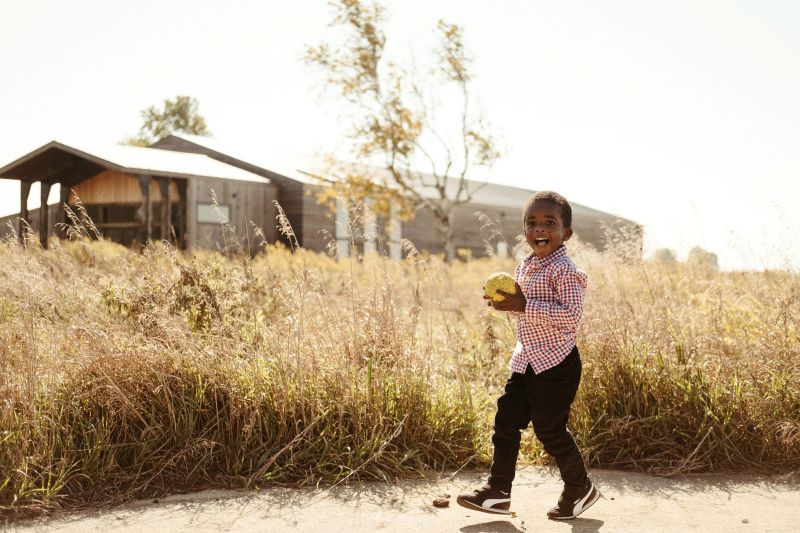
Photo by Anna Longworth.
Beyond the nature component, Frank wants to foster a different style of learning than what is found in traditional school settings. She says, “a big part of the philosophy is to provide the slowness and the freedom for children to become masters of their own interests, and develop a natural hunger for education.” She wants to foster a child-led environment, rather than one overshadowed by adult expectations for learning; an environment that prioritizes “trust, respect, autonomy, and empowerment, as well as the cognitive benefits of letting children move while they’re learning.” There will be no desks and no screens.
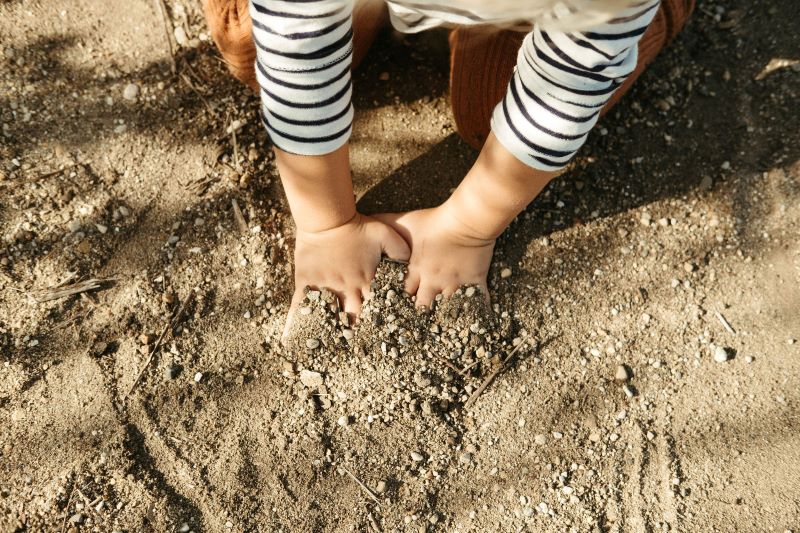
Photo by Anna Longworth.
Frank sees a traditional education system that is not changing, not evolving, and not serving children in a way that nurtures their well-being, their freedom, and their intellect. “These children go on to become adults that have trust issues, power issues, and are suddenly confused as to why they are miserable in the American workplace, which is just a continuation of the same dysfunctional hierarchy they saw mirrored in their school system.”
The school will have a preschool and a kindergarten, and Frank is open to the idea of expanding and adding grades if the demand is there. She’ll be hiring lead teachers to collaborate with on curriculum. Frank also hopes to gather input from prospective families through a survey on their website, so she can shape the curriculum and physical space based on the needs of children that may be coming to the school.
It will be a private, tuition-based school. They are committed to paying their teachers a living wage, and tuition will be the key to doing that. Frank hopes to continue to utilize Bluestem Hall as an event space for fundraisers, so there can be opportunities to sponsor students and support families who are held back by financial constraints. “It would be my greatest sadness if there’s a child who would benefit from our program and for that child to not participate.”
Frank and Voelker’s child will be a part of the first class of students at Bluestem Hall Nature School. “There’s no greater motivation for us than the motivation of developing something for our very own child…I hope in some ways that comforts other families, to know that’s where intention is coming from.”
You can find the family survey, and more information on the school, at their new website.








